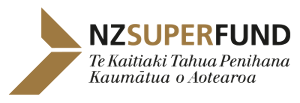NZ Super Fund hit hard by global market volatility
Challenging global equity markets have wiped $2 billion from the NZ Super Fund in the past year and the downturn is expected to continue over the next 12 months.
Tuesday, May 17th 2022, 7:45AM  1 Comment
1 Comment
by Jenni McManus

In a just-released update for stakeholders, the guardians of the fund say rising interest rates are weighing heavily on equity markets as central banks seek to tame inflation. Complicating their task are high commodity prices which increase inflationary pressure and crimp global growth.
The Super Fund now stands at $57b – about the same level as at the end of April 2021.
As with previous market downturns, the guardians say they are focusing on long-term horizons, “investing in a contrarian style and buying assets when we consider them to be cheap”.
The fund, the brainchild of the late Sir Michael Cullen, was set up by the Labour government in 2001 to help cover the ongoing costs of universal superannuation. The fund is not due to start paying out to cover super costs until the early 2030s.
In better news, the fund said it had been named as the top-performing sovereign wealth fund globally in a report by Global SWF, which compared investment returns across 20 major sovereign wealth funds and 20 major pension funds over the past six years.
The NZ Super Fund ranked first among sovereign wealth funds and third out of the 40 funds covered, with an 11.79% return over the period (FY16 to FY21).
The guardians say while they’re delighted with the result, six years is a short period for the fund and longer-term performance is what counts. As at the end of March, the fund has returned 10.23% a year – well ahead of expectations, they say.
“Investing for nearly 20 years, it has generated over $40b more than the cost to the government of contributing to it, making a meaningful contributi0n to New Zealand’s national wealth.”
On the global front, the guardians revealed that all fund investments in Russian sovereign debt have now been sold and investment managers have been instructed to divest from excluded and New Zealand government-sanctioned stock as soon as market constraints permit.
In March, the fund was one of the first New Zealand institutions to exclude Russian sovereign debt and securities of majority Russian state-owned enterprises on responsible investment grounds.
| « Financial Advice New Zealand hopes for COFI changes | Tough times ahead for NZ economy: Nikko economist » |
Special Offers
Comments from our readers
Sign In to add your comment
| Printable version | Email to a friend |



